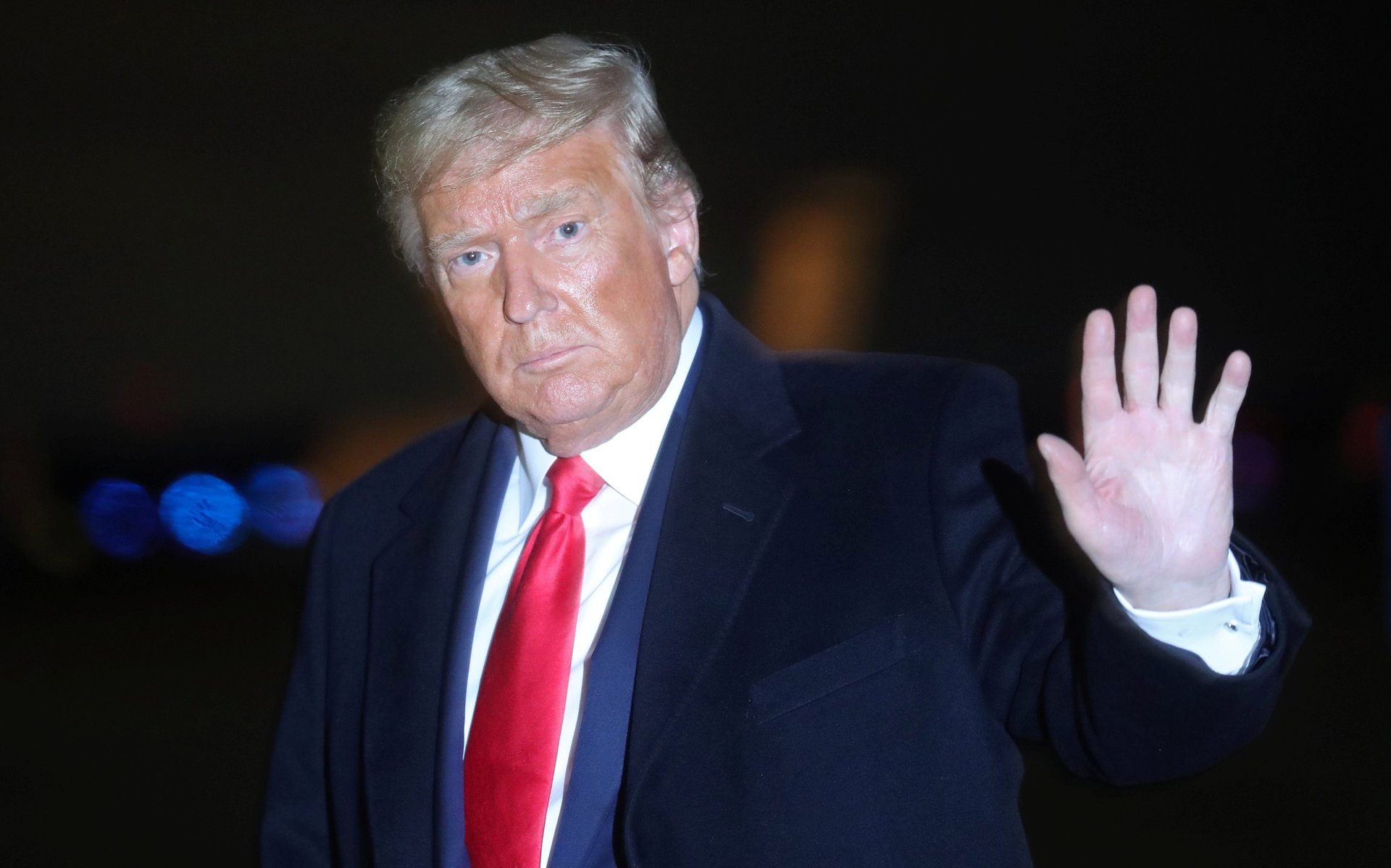More than 500 business professors are urging CEOs to denounce Trump
American CEOs have become very vocal about several contentious political and social issues. Just in the past few years, many have advocated for LGBTQ rights and voiced concern for America’s Dreamers. Some have taken heat for embracing gender-neutral bathrooms. Many condemned the travel ban from Muslim countries that US president Donald Trump instituted shortly after he took office. More recently, dozens have pledged support for the Black Lives Matter movement.


American CEOs have become very vocal about several contentious political and social issues. Just in the past few years, many have advocated for LGBTQ rights and voiced concern for America’s Dreamers. Some have taken heat for embracing gender-neutral bathrooms. Many condemned the travel ban from Muslim countries that US president Donald Trump instituted shortly after he took office. More recently, dozens have pledged support for the Black Lives Matter movement.
However, business leaders have largely stopped short of publicly endorsing one political candidate over another, even when one contender is clearly more aligned with their professed values.
With some notable exceptions—see Goya Foods CEO Robert Unanue’s praise for Donald Trump, Starbucks founder Howard Schultz’s backing of Democratic candidate Joe Biden, and last week’s pro-Biden memo to customers from Expensify CEO David Barrett—corporate leaders tend to stick to a more neutral message about federal elections: Go vote. To say anything more is generally seen as too polarizing, making it a bad business practice that could also alienate some portion of a workforce.
Now, however, more than 500 business school professors have decided it’s time to break with convention. They’ve signed an open letter to CEOs asking those who fear what another four years of a Trump presidency could do to American democracy and the US economy to speak up in favor of a Biden win.
“This is not an attempt to change any business leader’s mind about the current president. It is simply a demand that those who already recognize the grave danger Trump poses to our Republic not stay silent,” writes Deepak Malhotra, the Harvard Business School professor who wrote the letter and asked his peers to add their names to it.
The 500-plus signatories include several academics who have become prominent personalities outside of their ivory towers, such as Adam Grant and Angela Duckworth, both professors at the Wharton School of the University of Pennsylvania. Harvard’s Amy Edmondson, known for her theories about psychological safety in the workplace, also signed the note. (Indeed, speaking out against a president who refused to denounce white supremacists on national television is one way to support the psychological safety of employees from communities of color, for example; Trump-supporting employees, however, could be left feeling threatened.)
Malhotra opens the letter by acknowledging the deep divide between political parties and supporters in the US. However, he notes, many groups and professions have come together to decry Trump’s tenure and policies. He feels it’s time for corporate leaders to step up. He writes:
Large groups of veterans, generals, soldiers, politicians, scientists, doctors, ambassadors, civil servants, lawyers, journalists, and others have now come out against a President who denigrates science, peddles in lies, incites violence, attempts to delegitimize the press, politicizes everything from the justice department to the CDC to the postal service, and seeks to undermine the integrity of American elections. These bipartisan groups—who disagree on many things—now agree that no positive vision for our country can be realized under the continued presidency of Donald Trump.
Then comes the clincher (emphasis his):
It is time for business leaders to follow suit and speak out against the threat Trump poses to our country. For a profession that incessantly proclaims the importance of corporate values, makes much ado about CSR initiatives, and proudly embraces a commitment to everything from sustainability, to inclusion, to ethical business practices, it is unacceptable and immoral to remain silent at this time. As the growing list of open letters and editorial statements from other groups makes clear, publicly supporting the Democratic candidate in this election is not a political act. It is an act of conscience.
Later in the letter, Malhotra provides a business-minded rationalization for taking the unusual step and speaking up, noting that “[a]nalyses by Goldman Sachs and Moody’s—which indicate that a Biden presidency could be better for economic growth, better for employment, and better for lower- and middle-income families—provide additional cover to those in the business community who need it.”
However, he is also emphatic that “speaking out in 2020 should not, ultimately, come down to such calculations.” For any business leader who professes to value common corporate cultural values such as integrity and accountability, and who believes business “can be a force for societal good,” he says, “it is no longer acceptable to stay quiet.
You can read the entire letter at businnessprofessorsofamerica.com.
Election night in America is now only a week away. The question is, will that be enough time for these ideas to make the leap from the virtual hallways of business academia to the luxurious home offices of business leaders?
Surely this is a case study we all will be following.